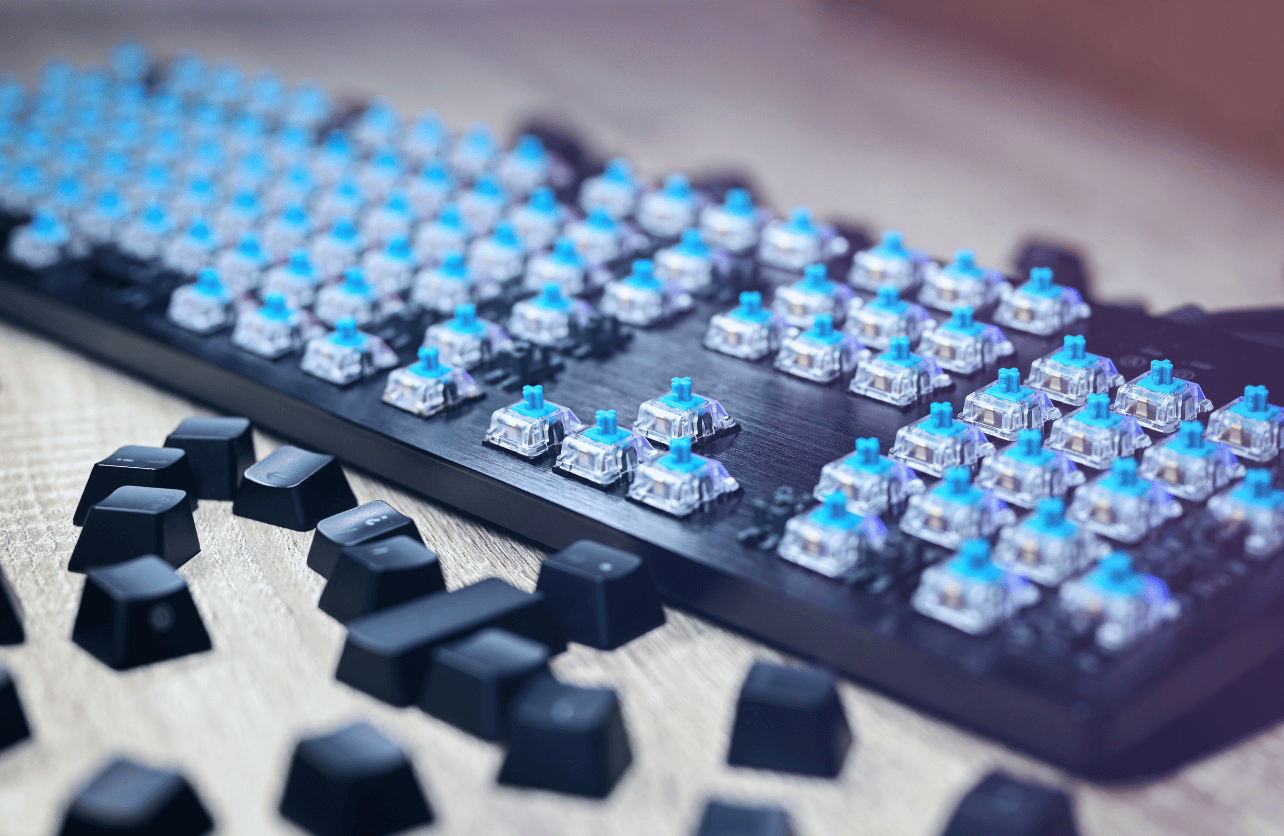Membrane vs Mechanical Keyboard: Which One Is Right for You?

Choosing the right keyboard can significantly impact your typing experience, gaming performance, and overall comfort. Two primary types dominate the market: membrane and mechanical keyboards. This article explores the differences between them to help you decide which one best suits your needs.
Understanding Keyboard Technologies
Membrane Keyboards

Membrane keyboards are the most common type found in offices and homes. They use a thin, flexible membrane layer beneath the keys. When a key is pressed, it pushes down on the membrane, completing an electrical circuit and registering the keystroke.
Characteristics:
- Cost-Effective: Generally cheaper to produce, making them more affordable.
- Quiet Operation: Produce less noise compared to mechanical keyboards.
- Slim Design: Often feature a low-profile design, making them lightweight and portable.
Mechanical Keyboards

Mechanical keyboards use individual mechanical switches for each key. These switches consist of several moving parts, including a stem, spring, and metal contacts. When a key is pressed, the switch mechanism actuates, sending a signal to the computer.
Characteristics:
- Durability: Mechanical switches are designed to last longer, often rated for 50 million keystrokes or more.
- Tactile Feedback: Offer a more pronounced tactile response, enhancing typing accuracy.
- Customization: Allow for switch type selection (linear, tactile, clicky), keycap replacement, and programmable features.
Comparing Membrane and Mechanical Keyboards
Typing Experience
- Membrane Keyboards: Provide a softer, mushy feel when typing. The keys require being fully pressed down to register, which may lead to slower typing speeds for some users.
- Mechanical Keyboards: Offer precise and responsive key presses. The variety of switches allows users to choose their preferred level of tactile feedback and actuation force.
Noise Level
- Membrane Keyboards: Quieter due to the rubber membrane absorbing much of the sound.
- Mechanical Keyboards: Tend to be louder, especially with clicky switches like Cherry MX Blue. However, quieter switches and sound-dampening O-rings can reduce noise.
Durability and Lifespan
- Membrane Keyboards: Typically have a shorter lifespan due to the wear and tear on the membrane layer.
- Mechanical Keyboards: Built to withstand extensive use, making them ideal for heavy typists and gamers.
Customization and Aesthetics
- Membrane Keyboards: Limited customization options. Generally come in standard layouts and designs.
- Mechanical Keyboards: Highly customizable with options for different keycaps, RGB lighting, and programmable keys.
Price Point
- Membrane Keyboards: More budget-friendly and suitable for basic computing needs.
- Mechanical Keyboards: Higher upfront cost but offer better value over time due to durability.
Pros and Cons
Membrane Keyboards
Pros:
- Affordable
- Quiet operation
- Lightweight and portable
Cons:
- Less tactile feedback
- Shorter lifespan
- Limited customization
Mechanical Keyboards
Pros:
- Superior typing experience
- Long-lasting durability
- Extensive customization options
Cons:
- More expensive
- Heavier and bulkier
- Can be noisy
Who Should Choose a Membrane Keyboard?
- Casual Users: Ideal for everyday tasks like browsing the web, writing emails, and occasional document editing.
- Quiet Environments: Suitable for offices or shared spaces where noise can be a distraction.
- Budget-Conscious Buyers: Great for those looking for a functional keyboard without a high price tag.
Who Should Choose a Mechanical Keyboard?
- Gamers: Beneficial for gaming due to faster response times and programmable keys.
- Professionals: Writers, programmers, and others who type extensively will appreciate the improved typing experience.
- Enthusiasts: Those who enjoy customizing their setup and prefer high-quality peripherals.
Your Trust, Our Core Commitment
At Rising Tech, earning and maintaining your trust is the cornerstone of our mission. We're dedicated to transparency, impartiality, and the relentless pursuit of truth in every article, review, and recommendation we publish. Our commitment to these principles ensures that you, our valued reader, are always equipped with reliable and unbiased information. Let us be your trusted guide in the ever-evolving world of technology.